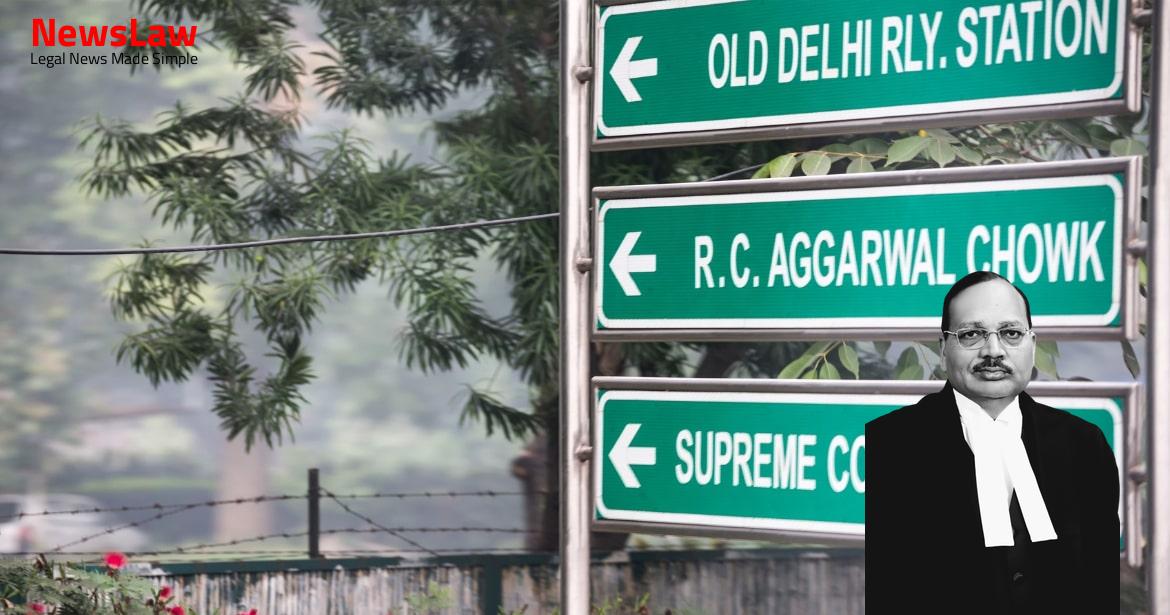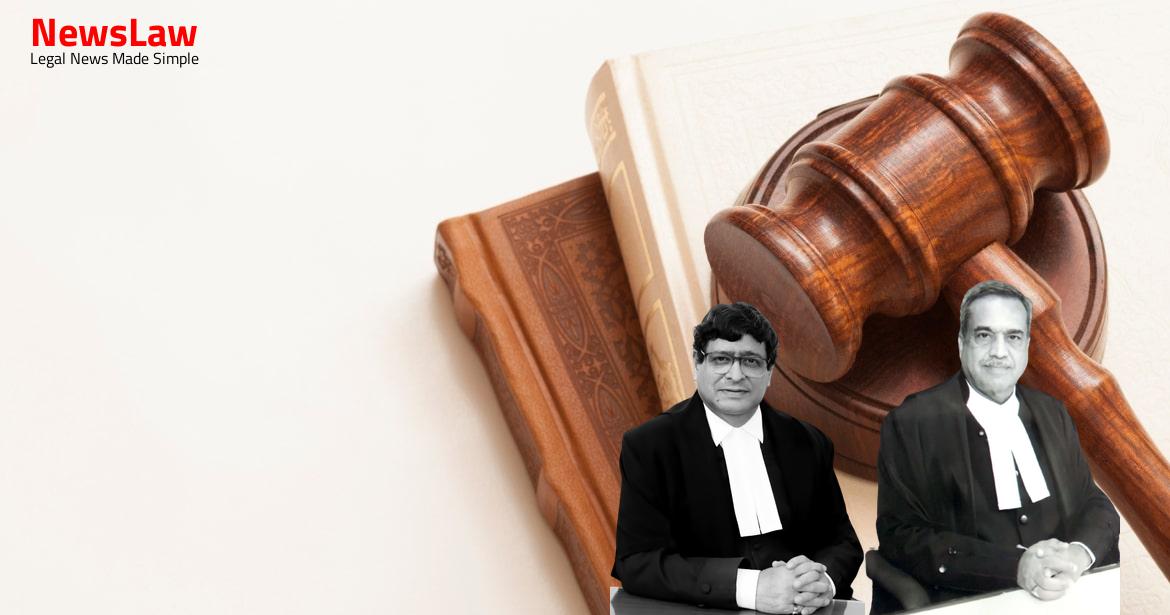In a recent legal judgment, the Supreme Court of India has reaffirmed the decision in the case of Workmen v. Management. The Court has directed the Civil Judge to proceed with the trial of Civil Suit No. 774/2005. The case involves a dispute over the imposition of fines on workmen by the management, leading to a lengthy legal battle. Learn more about the recent developments in this ongoing legal battle.
Facts
- The civil suit was filed by the workmen for declaration and permanent injunction against a fine imposed on them by the appellant management.
- The respondents argued that the imposition of the fine violated Regulation 35 of the standing order, constituting a breach of the contractual obligation between the parties.
- The appellant attempted to halt the suit by invoking Order VII Rule 11 of the Code of Civil Procedure, 1908, contending that the plaint should be rejected and the respondents should seek remedy under the Industrial Disputes Act, 1947.
- A revision petition against this plea was dismissed by the High Court on 27.02.2008.
- The plea was also rejected by the Civil Judge, Jaipur City on 16.5.2006.
Also Read: Court’s Jurisdiction in Re-appraising Arbitrator’s Findings
Issue
- Notice was issued in the matter but no interim order was granted
- The suit would have been tried and decided in the meantime
- The appeal may also have been considered given the time period that has lapsed
Also Read: Contrary Directions in Issuance of Letter of Intent
Analysis
- Civil courts will be the proper forum for disputes unless they are frivolous ex-facie.
- Workmen should have the option to approach the Labour Court/Industrial Tribunal directly without a government reference for industrial disputes covered under Section 2-A of the Industrial Disputes Act.
- Certified Standing Orders under the Industrial Employment (Standing Order) Act, 1946 are binding conditions of service for both employers and employees, violation of which entitles the employee to relief from Industrial Disputes Act forums or Civil Court.
- Government intervention is required for extensive machinery provided for settlement of industrial disputes under the Industrial Disputes Act.
- Civil courts have no jurisdiction over industrial disputes concerning rights or liabilities created only under the Industrial Disputes Act.
- If a dispute involves general law of contract or rights and obligations from enactments like the Industrial Employment (Standing Orders) Act, the only remedy is through Industrial Disputes Act forums.
- The Industrial Disputes Act serves as an alternative dispute resolution mechanism for workmen, providing speedy and inexpensive resolution.
- Courts and Tribunals under the Industrial Disputes Act have extensive powers to grant appropriate relief for ending industrial disputes.
- Justice can be delayed for an ad infinitum period of time, which is regrettable.
- The principles set out in The Premier Automobiles Ltd. v. Kamlekar Shantaram Wadke of Bombay & Ors.- 1976(1) SCC 496 are applicable.
- Para 9 of the judgment states that these principles govern the case.
- The impugned order is upheld as there is no ground for interference.
- The appeal is dismissed due to lack of merit.
- The orders in question are considered to be of an interlocutory nature.
- The case involves the recovery of a fine amount not covered by Section 2-A of the Industrial Disputes Act.
- The workmen chose to approach the civil court for their claims, but have not received any adjudication for fifteen years.
Also Read: Application for Stay in Civil Suit Rejected: Court’s Legal Analysis
Decision
- Directing the Civil Judge to proceed with the trial of Civil Suit No.774/2005.
- Emphasizing the need to complete the trial and pronounce judgment within six months.
- Dismissal of the appeals mentioned in the case.
Case Title: RAJASTHAN STATE ROAD TRANSPORT CORP . MANAGING DIRECTOR Vs. RAMESH KUMAR SHARMA ETC. (2020 INSC 47)
Case Number: C.A. No.-007472-007472 / 2011



